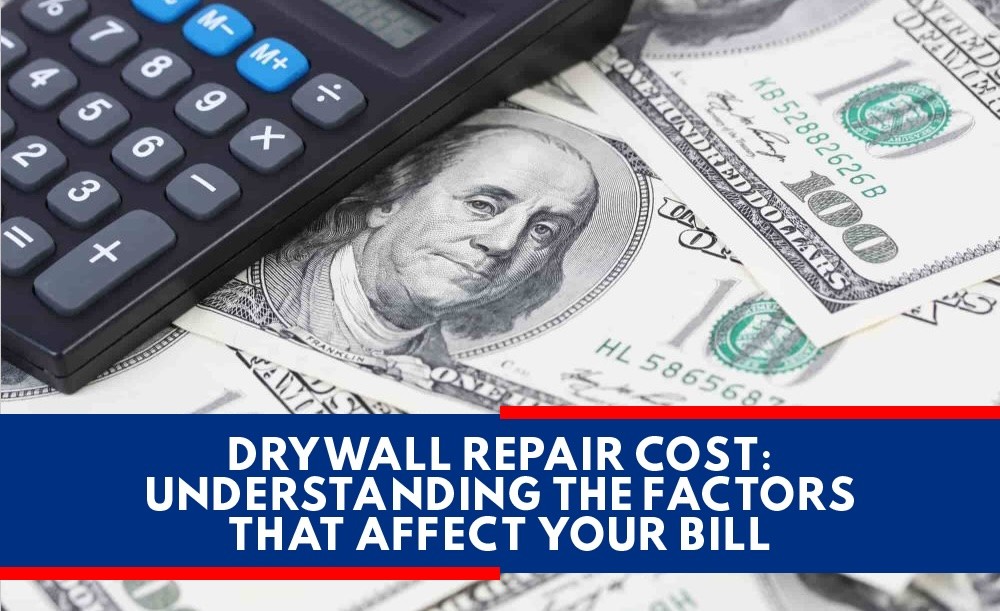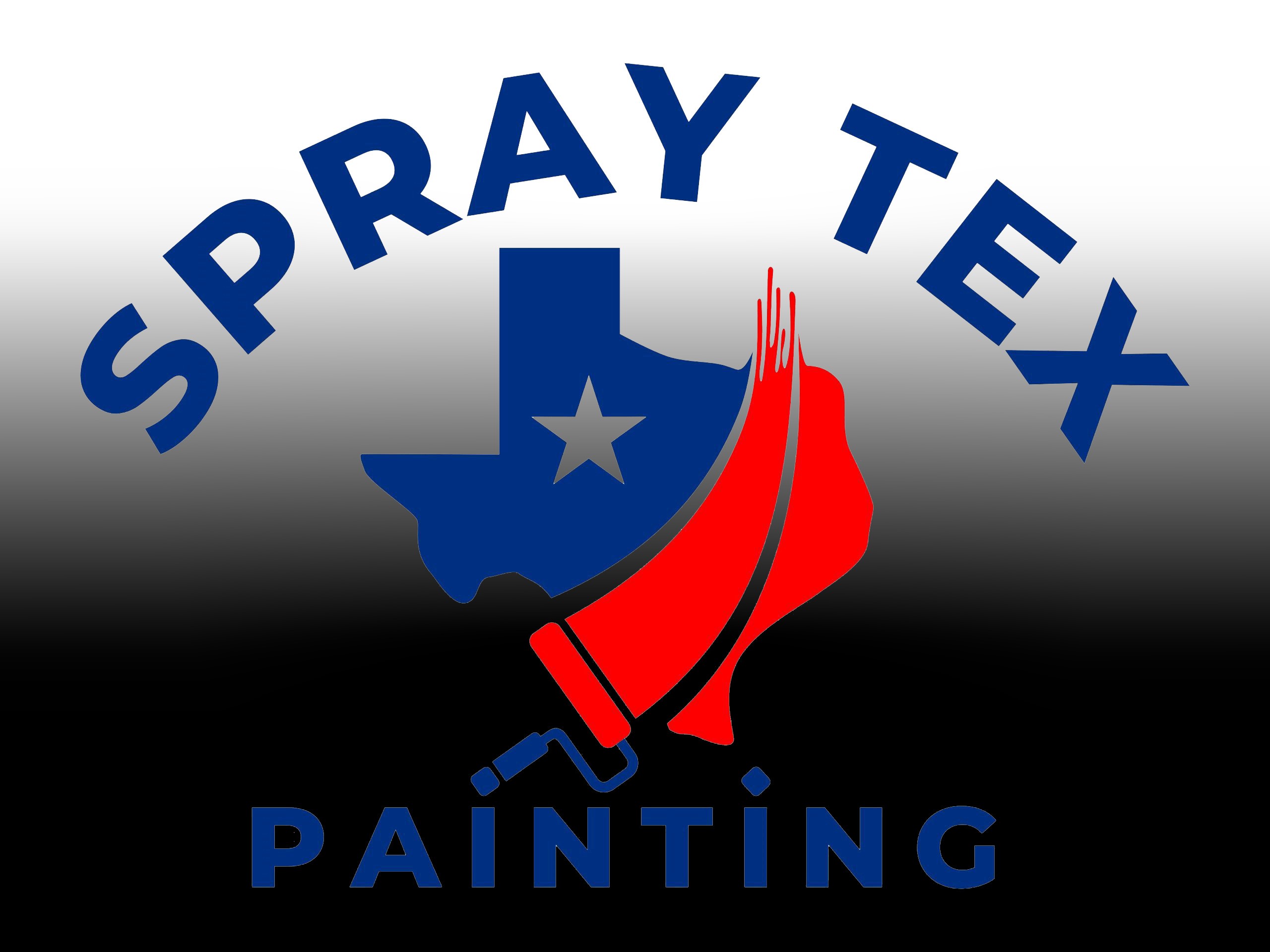DIY Drywall Repair: A Step-by-Step Guide to Fixing Common Issue
Drywall Repair Cost: Understanding the Factors That Affect Your Bill

Table of Contents
Have you ever wondered why the cost of drywall repair can vary so drastically from one job to another? Do you understand what goes into calculating a fair price for the work that needs to be done? Drywall repair is an essential part of any home improvement project, and understanding its cost structure is key to making sure your repairs are both effective and affordable. In this article, we will explore the factors that affect how much money you should expect to pay when repairing drywall in your home or office.
We will look at things like labor costs, materials used, and various other considerations such as location, size of the job, and complexity. We’ll also discuss some tips on how to negotiate with drywall repair contractors if needed and provide resources for finding reliable professionals who offer quality services at competitive prices. By having a better understanding of these components, you can ensure that you get the best value possible out of any drywall repair job.
In addition to exploring drywall repair costs and their associated factors, we’ll also cover safety issues related to DIY projects versus professional help - including potential hazards posed by poor-quality materials or shoddy craftsmanship. With this information in hand, you'll have everything you need to make informed decisions about your next drywall repair project!
The cost to repair drywall can vary drastically depending on the size and layout of the room and other conditions. A larger space will require more time and materials to fix than a smaller one, and the cost of the material and extra labor can add up quickly. Factors like awkward angles, complex shapes, or extra cuts can all drive up the repair drywall costs significantly. It's essential to consider these issues before beginning a project to determine whether it's better to do the repairs yourself or hire a professional.
Ultimately, when it comes to repairing drywall, many individual elements contribute toward the final bill -- so homeowners should always get an estimate before any work begins. That way you'll know what kind of budget you're working with and how much of your home improvement funds need to be allocated toward this particular job. With that information in hand, let's dive into how room size and layout come into play when assessing drywall repair costs.
One of the key factors that contribute to drywall repair costs is the size and layout of the room. The square footage of space can determine how much material will be needed, as well as how long it'll take for repairs to be completed. Generally speaking, larger rooms require more panels, which can lead to higher labor charges due to an increased amount of time spent cutting them down to fit correctly. It's also important to consider linear feet when assessing project cost; this measurement refers to the length of the wall that needs repairing and can result in added expenses if there are multiple corners or angles involved.
Another factor worth considering is whether any existing walls need reinforcing before new sheetrock installation. This could become necessary if the existing drywall has been weakened by moisture damage or improper installation; additional bracing may then have to be included to make sure everything holds up during future use. Of course, these extra steps will add to your overall bill - so it's always best to get a professional assessment before moving forward with any sort of project.
Overall, understanding what influences drywall repair costs can help homeowners better plan their projects and ensure they're setting aside enough funds accordingly. With this information in mind, let's look at another major component: damage severity.
The severity of damage to a drywall surface can have an immense impact on the total cost of repairs, as some issues may be more time- and labor-intensive than others. From water damage to structural issues and beyond, homeowners need to understand what their specific project entails to get a better idea of how much they're likely going to spend. Here are five main factors that could affect repair costs:
• Water Damage – If your wall has been weakened by moisture or flooding, there's a good chance additional materials will need to be purchased to restore integrity. This is often the case with bathrooms and basements where humidity levels are higher.
• Structural Damage – Large cracks or breaks in sheetrock can require extensive bracing work before new panels can be hung. This added step adds to the overall bill.
• Building Materials – The type of material used for any given repair job (wood paneling versus vinyl siding) also affects price points since each one requires different tools and techniques when being installed properly.
• Finish Work – Sanding down surfaces after installation, along with primer application and paint touchups all add up over time -- so make sure you factor these steps into your budget accordingly.
• Color Matching/Texturing – Trying to match existing textures or colors exactly can take longer than anticipated and result in extra expenses if not done correctly from the start.
When assessing drywall repair needs, always keep these considerations in mind as they'll play a direct role in determining final costs for any particular project. Now let's look at another key element when gauging cost estimates: accessibility to the job site.
When estimating the cost of drywall repair, it's important to take the accessibility of the job site into account. Depending on the layout and structure of the building, access to certain types of drywall may be more difficult than others and could cause labor costs to increase. Things like air conditioning ducts, electrical wiring, or even nail holes can all hinder progress if they are in the way and require extra time and effort to move aside before any repairs can start. Additionally, certain types of drywall damage ( such as water damage or fire damage) may also need extra attention which could add additional time to a project.
Even without these kinds of issues present, there are still plenty of other logistical concerns to think about: do you need scaffolding? What type of ladders will the contractor bring? How much time must be devoted to preparing tools and supplies ahead of time? All these answers play an integral role in determining overall cost estimates for any given project.
No matter what kind of home renovation or construction work you’re looking at, factoring in all relevant variables beforehand helps ensure your budget stays intact throughout the process. Keeping this concept in mind leads us nicely to our next topic: materials and supplies used for drywall repairs.
When it comes to drywall cracks and hole repair, the cost of doing it right means more than just a few dollars. You'll need to source specific materials, ranging from a drywall repair kit and screws to spackle and primer to patch drywall holes, cracks, and other damage. Depending on the scope of the renovation project, these costs can increase even further if specialized tools are needed, such as dehumidifiers for water damage restoration or fireproofing materials if the area has experienced a blaze. For larger-scale projects that require additional personnel or complex modifications like cutting extra angles or shapes, labor costs can also quickly add up.
Fortunately, though, there are some ways around these issues without breaking the bank: getting creative with recycling existing items (such as using old bedsheets as makeshift dropcloths) or conducting research online ahead of time so you know which products are most affordable. Taking the time to weigh all options before deciding helps ensure the cost of repairs doesn't become too expensive.
The next step towards understanding how much money will be spent on drywall repair projects is assessing labor prices charged by contractors.
Perhaps one of the most important factors in determining how much your drywall repair project will cost is labor. If you’re dealing with significant damage, such as a hole or crack larger than 6 inches wide, then it may be necessary to call in professional help for structural repairs. Depending on the contractor and their experience level.
In addition, if there’s any suspicion of mold or mildew present in the damaged area (which usually requires special expertise to properly identify) then hiring a professional mold inspector might also be recommended. Fees associated with this service vary significantly depending on where you live and could potentially incur additional costs beyond just repairing existing damage.
Overall, when looking at labor prices charged by contractors make sure they're adequately qualified and licensed as required by local laws since failure to do so can result in subpar results that end up costing more money down the line. This is why researching different options ahead of time is crucial when deciding who should do the job: getting quotes from multiple sources not only helps you get a sense of what market rates are for similar services but allows you to compare quality across companies more accurately too. With all these considerations taken into account, you'll have a better understanding of what kind of cost of repairs you need to prepare for going forward. Now let's look at whether DIYing this type of fix yourself or hiring professionals would be best suited for your unique situation.
Faced with drywall repair, you may be wondering if it's something that can be tackled on your own or whether professional help is a must. On the one hand, DIYing this type of fix can certainly save money in the short-term but there’s also potential for costly mistakes down the road if not done properly—so it pays to carefully weigh both options before deciding what route to go down.
If opting for a DIY approach, then obtaining and applying joint compound is key for any successful repairs; however, getting just the right consistency and texture takes practice so don't expect perfect results from day one. It might be wise to watch some tutorials online to get an idea of what techniques are needed first before attempting anything yourself. Also, make sure you have all necessary safety gear (such as goggles and gloves) during application since inhaling too much dust could lead to health issues later on.
On the other hand, hiring a contractor will usually provide more peace of mind when dealing with larger-scale damage like cracks or holes bigger than 6 inches wide. Additionally, they often come equipped with special knowledge related to mold detection which would be invaluable if present: it’s always better safe than sorry when it comes to these types of problems so having access to a reliable professional mold remediation service would likely be worth its weight in gold.
In summary, there's no single answer as everyone has different needs depending on their particular situation—but by taking into account both labor costs and potential long-term risks associated with each option available, you should be able to decide quickly on how best to proceed with your drywall repair project moving forward.
Author

Mason Marquis, raised in Newport Beach, California, and Austin, Texas, amalgamated his experiences from both vibrant cities in his journey. His academic pursuit in Economics and Psychology at the University of North Texas (UNT) led to the founding of Spray Tex Painting. This venture was not just a business for Mason but a practical application of his academic learnings, particularly the integration of economic concepts and psychological understanding. Spray Tex Painting, under Mason's direction, transcends being merely a painting service; it's a platform where client visions are realized through dedication and creativity.
Related Articles

DIY Drywall Repair: A Step-by-Step Guide to Fixing Common Issue

Finding the Right Drywall and Painting Contractors Near Me: Tips for Success

How to Get an Accurate Quote from Drywall Repair Contractors

Painting and Drywall Repair: Coordinating Your Projects for the Best Results